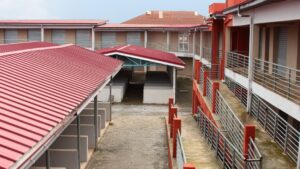
Deputy Foreign Affairs Minister, Charles Owiredu
The Ministry of Foreign Affairs and Regional Integration will soon constitute a task force with representatives from key ministries to draft the instrument for the establishment of the Early Warning Mechanism in Ghana.
The move is anticipation of the establishment of a National Coordination Centre for Early Warning Mechanism in the country.
Speaking at a sensitisation workshop for the establishment of early warning and response mechanism in Ghana yesterday in Accra, the Deputy Foreign Affairs Minister, Charles Owiredu, was satisfied at the numerous benefits Ghana stands to gain as far as early warning signs and response mechanisms are concerned.
“It is my ardent hope that the link between early warning signs and early response is further strengthened for optimal outcomes,” he said.
Mr Owiredu was further optimistic that efforts to ensure the success of the task force and draft instrument will be deployed.
The Mechanism
The strategic framework to establish a National Coordination Centre for the Early Warning and Response Mechanism in each ECOWAS member state was adopted at its 45th Ordinary Session in Accra in July 2014.
This was because the various interventions undertaken by ECOWAS such as the Protocol on Non-Aggression and Protocol on Mutual Assistance in Defence to promote peace and security within the sub-region was inadequate to address the burgeoning intra-state conflicts in the region.
The major objective of the national Coordination Centre for the early warning mechanism is to strengthen the ECOWAS strategy for information sharing among Member States, in order to prevent or minimise threats.
The Centre’s role is to warn the government of threats to human security, propose appropriate action, coordinate and ensure monitoring of the implementation of response to the warning, optimise information collection, quality and analysis through a participative approach involving all relevant stakeholders
New approach
The Vice President of the ECOWAS Commission, Madam Finda Koroma, was hopeful the centres will be established in all member countries by the end of 2020.
“As we continue to face threats in the region, which is causing brain drain and denying our citizens the opportunity to meaningfully contribute to development, there is the need for us to put measures in place to forestall and control such tendencies,” she said.
Madam Koroma further hoped that Ghana would set up its mechanism before the general elections in December.
Ghana, Benin, Guinea, Gambia, Nigeria, Sierra Leone and Togo are countries working towards the deployment of the mechanism with funding from the German Agency for Cooperation (GIZ) and EU through the APSA IV Project.








